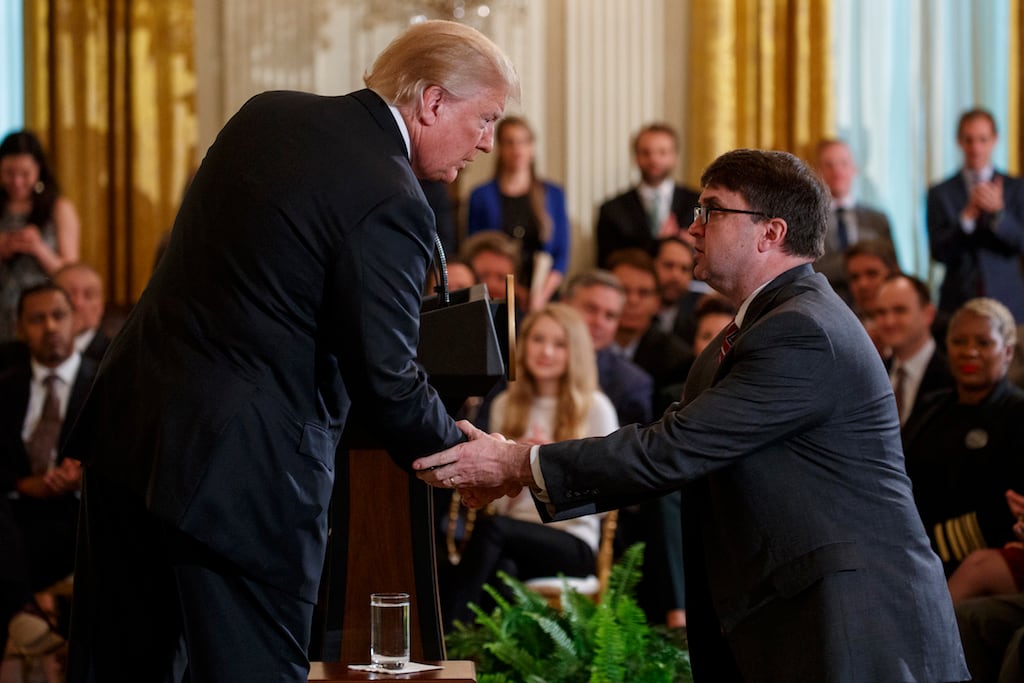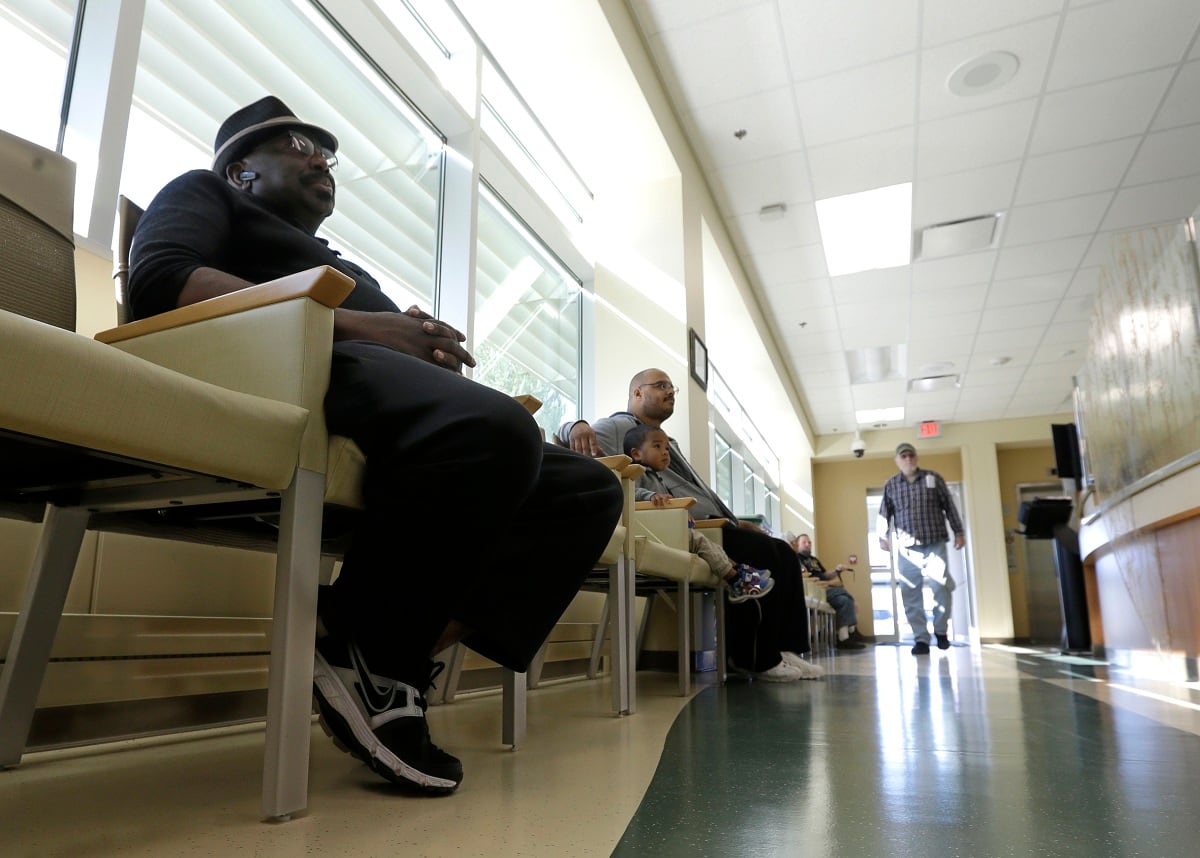WASHINGTON — The upcoming confirmation hearings for the next Veterans Affairs secretary won’t be nearly as contentious as they would have been with the last nominee, but Robert Wilkie still faces a host of tough questions before he steps back into the department’s top leadership spot.
Wilkie, who serves as the Pentagon’s under secretary for personnel and readiness, was announced as President Donald Trump’s pick for the Cabinet post in May after a tumultuous stretch for VA. His confirmation hearing is set for June 27, after his formal nomination arrived on Capitol Hill this week.
Until last month, Wilkie had been working as acting VA secretary for two months, bringing a measure of stability to the organization. His official nomination comes three months after former VA Secretary David Shulkin was dismissed from the job over Twitter and two months after former White House physician Rear Adm. Ronny Jackson withdrew from consideration for the job.
Unlike those two, Wilkie’s recent government work and proposed promotion have not been surrounded by controversy. He was confirmed for his Defense Department post last November just two weeks after an uneventful Senate Armed Services Committee hearing, and has drawn praise for his work from lawmakers and veterans advocates as acting VA secretary in recent months.
RELATED

The 55-year-old bureaucrat is an Air Force Reserve colonel who previously spent time in the Navy Reserve. He is also the son of an Army artillery commander, and has spoken frequently about growing up on military bases and the challenges his family faced in dealing with his father’s combat injuries.
Unlike Jackson, whose inexperience with the VA system was expected to dominate his confirmation hearings (before rumors of unprofessional behavior surfaced), Wilkie is likely to face less skepticism about his readiness to run the system and more questions about Trump’s policies for veterans reforms moving ahead.
Here are the most critical questions and answers to watch for when he takes the stand:
What is Wilkie’s definition of VA privatization?
Wilkie is likely to be asked multiple times whether he is in favor of privatizing VA health care, and he will say no every time. But the term has become an ill-defined pejorative within the veterans community, meaning different things to different groups.
About one-third of all medical appointments paid for by VA last year took place in hospitals and clinics outside its own federal system. That number is expected to rise as the department implements a new community care overhaul in the next year, allowing veterans more access to private-sector appointments at VA’s expense.
RELATED

Democrats largely went along with that plan, but are likely to question Wilkie on where he would draw the line on allowing patients outside the VA system. The new legislation keeps department administrators heavily involved in veterans’ overall care plan, but rules governing that arrangement still have to be finalized.
Union officials have already attacked the new plan as VA outsourcing its most important responsibility to care for ailing veterans. And Shulkin, in his departure tour, repeatedly warned that forces within the White House are pushing too many department financial resources out of the current system and into the private sector.
How much say will Wilkie have over his staff?
Shulkin blamed political operatives within the department for undermining his tenure as secretary, and for trying to advance a too-aggressive privatization agenda within the department. Nearly all of the individuals he viewed as opponents are still there.
Whether Wilkie will make large-scale changes at the department remains to be seen. Acting VA Secretary Peter O’Rourke is likely to return to his role as department chief of staff — or another high-profile post — but Wilkie could also push to bring some of his own confidants in to ease his transition from the Pentagon.
Wilkie’s team earned high marks during his two months as acting secretary, so that may give him more ability to bring in new faces than Shulkin, who had promised to fire insubordinate workers in the weeks leading up to his dismissal.
Can Wilkie get anyone to work at VA?
The department has seen numerous high-profile and lower-level departures in recent months, leaving a host of vacancies that the next secretary will have to work to fill.
Lawmakers — especially Democrats — have criticized department leaders for thousands of medical position vacancies throughout VA hospitals, saying it undermines care and faith in the system. Recruiting for those posts has also been a persistent problem since the 2014 wait-time scandal hurt the public image of the sprawling medical system.
Meanwhile, the White House has been unable to find a nominee for the VA under secretary of health for the last 17 months, and saw Deputy Secretary Thomas Bowman retire last week.
Courting replacements for those posts will be a major task for the new secretary, or will require him to perform double duty for months to come.
Leo covers Congress, Veterans Affairs and the White House for Military Times. He has covered Washington, D.C. since 2004, focusing on military personnel and veterans policies. His work has earned numerous honors, including a 2009 Polk award, a 2010 National Headliner Award, the IAVA Leadership in Journalism award and the VFW News Media award.





